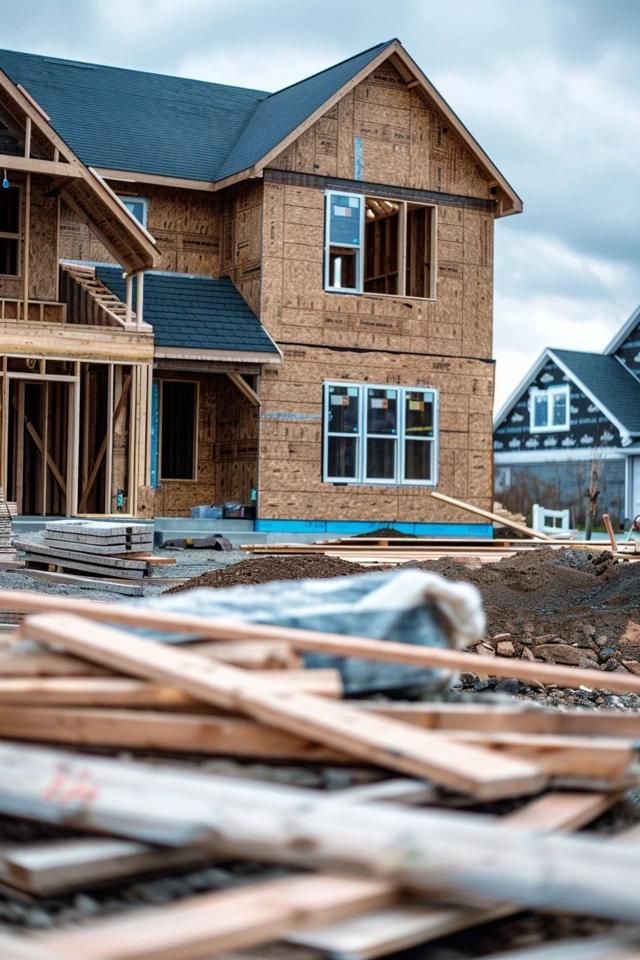Blog > Building vs. Buying: Is a New Home Right for You?

Buying a home is one of the biggest financial and emotional investments you'll ever make. One of the first decisions you'll face is whether to purchase a newly built home or an existing one. While the idea of a brand-new home can be exciting, it also comes with its own set of challenges.
Let's break down the pros and cons to help you decide if a newly built home is the right choice for you.
The Pros of a Newly Built Home
1. Customization and Modern Features
One of the biggest advantages of a new home is the ability to customize it to your liking. From floor plans to finishes, many builders allow buyers to choose countertops, flooring, cabinetry, and even smart home features. This level of personalization ensures your home suits your style and needs from day one.
2. Energy Efficiency and Lower Maintenance
Newly built homes typically come with modern energy-efficient appliances, better insulation, and sustainable building materials, which can lead to lower utility bills. Additionally, since everything is brand new, you’re less likely to face major repairs or replacements in the near future.
3. Warranty Protection
Most new homes come with builder warranties that cover structural components, appliances, and other systems for a set period. This gives homeowners peace of mind knowing that any unexpected issues may be covered at little to no cost.
4. Safer and Up-to-Code Construction
New homes adhere to the latest building codes and safety standards. This means better wiring, updated plumbing, and safer materials, reducing potential hazards like lead paint or asbestos, which can sometimes be found in older homes.
5. Modern Community Amenities
Many new developments include access to community amenities such as parks, walking trails, pools, and fitness centers.
"If you’re looking for a sense of community and convenient facilities, a new build in a planned neighborhood may be appealing."
The Cons of a Newly Built Home
1. Higher Upfront Costs
New construction homes often come with a premium price tag compared to older homes in the same area. The customization options can also add up quickly, leading to higher overall costs than initially expected.
2. Delayed Move-In Timeline
If you’re building a home from the ground up, construction delays due to weather, labor shortages, or supply chain issues can push back your move-in date. Unlike an existing home, which you can typically move into shortly after closing, a new build requires patience.
3. Landscaping and Neighborhood Maturity
Newly built homes often come with minimal landscaping, meaning you may need to invest time and money into growing trees, grass, and gardens. Additionally, new developments can feel sterile or lack character compared to established neighborhoods with mature trees and a lived-in feel.
4. Unexpected Additional Costs
While warranties cover major issues, many new home buyers find themselves paying extra for blinds, fencing, landscaping, and appliances that aren’t always included in the base price of the home.
5. Less Room for Negotiation
Unlike existing homes where buyers can negotiate price, closing costs, or request repairs, new home builders tend to have less flexibility. The price is often set, and discounts or incentives are limited.
Final Thoughts: Is a New Home Right for You?
Deciding between a newly built home and an existing one ultimately comes down to your priorities.
"If you want modern features, energy efficiency, and minimal repairs, a new home may be the perfect fit."
However, if you value character, a mature neighborhood, and potential cost savings, an existing home might be a better option.
Before making a decision, weigh the pros and cons carefully, visit model homes, and consult with a real estate professional to ensure you choose the best home for your lifestyle and budget.
